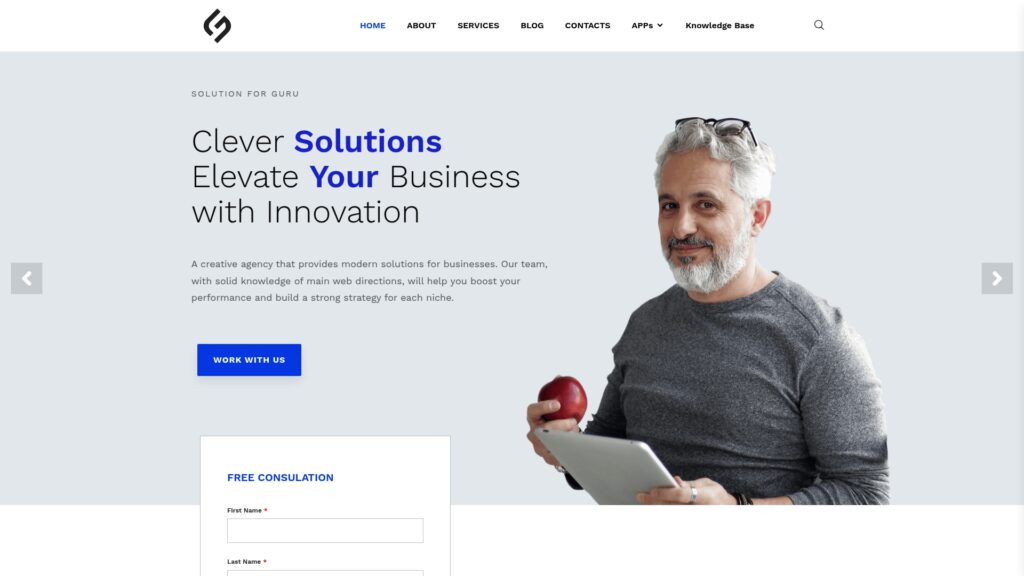CRM in Financial Services: Improving Trust and Customer Retention

The financial services industry faces unprecedented challenges in building and maintaining customer trust while navigating complex regulatory environments, evolving customer expectations, and intense competition. Traditional relationship banking has given way to digital-first interactions, yet the fundamental need for trust and personalized service remains paramount. Modern CRM technology offers financial institutions powerful tools to strengthen customer relationships, demonstrate value consistently, and create the transparent, responsive experiences that foster long-term loyalty in an increasingly competitive marketplace.
Table of Contents
- Quick Summary
- What is CRM in Financial Services?
- Why is Trust Critical in Financial Services Relationships?
- How Does CRM Technology Build Customer Trust?
- What Role Does CRM Play in Regulatory Compliance?
- How Can Financial Institutions Use CRM for Personalization?
- What Are the Key Features Financial Services Need in CRM?
- What Security Considerations Matter for Financial Services CRM?
- Summing up
- Frequently Asked Questions
- Benefits of Cooperation with Solution for Guru Company
Quick Summary
CRM in financial services encompasses specialized customer relationship management systems designed to address the unique needs of banks, wealth management firms, insurance companies, and other financial institutions. These platforms facilitate personalized service delivery, ensure regulatory compliance, protect sensitive financial data, and provide comprehensive customer views that enable proactive relationship management. Leading solutions like Salesforce CRM, Pipedrive CRM, Bigin by Zoho CRM, Zoho CRM, and Creatio CRM offer varying capabilities suited to different financial service segments, from enterprise banks requiring sophisticated compliance tools to independent financial advisors seeking straightforward client management. Effective CRM implementation in financial services directly correlates with improved customer retention rates, increased cross-selling success, enhanced regulatory compliance, and stronger customer trust—critical factors determining long-term profitability in highly competitive financial markets.
What is CRM in Financial Services?
CRM in financial services represents the strategic application of customer relationship management technology and methodologies within banks, investment firms, insurance companies, credit unions, wealth management practices, and other financial institutions. Unlike generic CRM systems designed for general business use, financial services CRM addresses industry-specific requirements including stringent regulatory compliance, sophisticated security protocols, complex product portfolios, and the paramount importance of trust in relationships involving customers’ financial wellbeing.
At its foundation, financial services CRM consolidates customer information from disparate sources—checking accounts, investment portfolios, loan applications, insurance policies, and service interactions—into unified profiles enabling relationship managers to understand complete customer situations. This holistic view proves essential in financial services where customers often maintain multiple product relationships, and effective cross-selling or advisory services require understanding the full financial picture rather than isolated product holdings.
Moreover, financial services CRM extends beyond simple contact management to incorporate specialized functionality addressing industry workflows. This includes compliance documentation tracking that maintains audit trails for regulatory requirements, sophisticated household management linking family members and business entities, investment performance tracking and reporting, loan origination pipeline management, and policy administration for insurance operations. These specialized capabilities distinguish financial services CRM from generic business systems that lack understanding of industry-specific processes.
The competitive landscape in financial services has intensified dramatically, with traditional institutions facing challenges from digital-first competitors, fintech startups, and non-traditional entrants leveraging technology advantages. Simultaneously, customer expectations have evolved, with financial services clients demanding the same personalized, convenient, and responsive experiences they receive from leading technology companies in other sectors. CRM technology enables traditional institutions to compete effectively by delivering personalized service at scale, maintaining consistent experiences across channels, and demonstrating deep understanding of individual customer needs and goals.
Salesforce CRM
Different segments within financial services have varying CRM requirements, and platform selection must account for these distinctions. Salesforce CRM dominates the enterprise banking and wealth management segments through its Financial Services Cloud, which provides industry-specific data models, compliance features, and sophisticated automation capabilities. Major banks, investment firms, and insurance companies leverage Salesforce’s extensive customization capabilities to create comprehensive platforms supporting complex organizational structures and diverse product offerings.
Pipedrive CRM
For independent financial advisors, small wealth management practices, and boutique investment firms, Pipedrive CRM offers streamlined client acquisition and relationship management focused on pipeline visibility and deal progression. While lacking specialized financial services features, Pipedrive’s simplicity and sales-focused approach serve advisors prioritizing new client acquisition and straightforward relationship tracking over comprehensive wealth management functionality.
Bigin by Zoho CRM
Bigin by Zoho CRM serves the entry-level segment, providing small financial services firms, independent insurance agents, and startup fintech companies with affordable, accessible customer management. Its simplified feature set proves sufficient for organizations in early growth stages, though limited compliance features and basic reporting may constrain usage for regulated financial institutions with sophisticated requirements.
Zoho CRM
Zoho CRM occupies a strategic position for mid-market financial services firms seeking robust capabilities without enterprise complexity or cost. Regional banks, mid-sized insurance agencies, and growing wealth management firms benefit from Zoho’s balance of functionality and usability. The platform includes compliance-supporting features such as audit trails and data security controls while maintaining reasonable implementation complexity suitable for organizations without dedicated CRM administration teams.
Creatio CRM
Creatio CRM distinguishes itself through industry-specific solutions for banking and insurance, providing pre-configured processes for loan origination, customer onboarding, and policy administration. Its low-code platform enables financial institutions to customize workflows extensively, adapting the system to unique operational models while maintaining industry best practices. This flexibility proves particularly valuable for specialized financial services firms with distinctive service delivery approaches.
Consequently, CRM selection in financial services must balance several factors: regulatory compliance requirements demanding robust security and audit capabilities, organizational size and complexity influencing customization needs, specific financial services segment determining required specialized functionality, and technical resources available for implementation and ongoing administration. The right platform aligns with these factors while supporting the overarching goal of building stronger, more profitable customer relationships grounded in trust and demonstrated value.
Why is Trust Critical in Financial Services Relationships?
Trust forms the absolute foundation of financial services relationships in ways that exceed most other industries. Customers entrust financial institutions with their money, their financial futures, their most sensitive personal information, and often their family’s wellbeing. This profound trust makes financial services relationships uniquely valuable when strong but extraordinarily fragile when damaged, as lost trust rarely recovers and departing customers seldom return.
The critical nature of trust in financial services stems from several fundamental characteristics of the industry. First, financial services are inherently abstract—customers cannot physically evaluate product quality before purchase as they might with tangible goods. A mortgage, investment strategy, or insurance policy represents promises of future performance that customers must accept based largely on faith in the institution’s competence and integrity. Without trust, these intangible offerings lose credibility and customers seek alternatives despite potentially inferior products.
Second, the consequences of financial services failures prove devastating. A defective consumer product creates inconvenience or minor financial loss, but financial services failures can destroy retirement savings, trigger home foreclosures, leave families unprotected after tragic events, or enable identity theft with cascading consequences. These high stakes make customers appropriately risk-averse and extraordinarily sensitive to any signals suggesting their trust might be misplaced.
Third, financial services involve information asymmetry where institutions possess vastly more knowledge than customers about products, risks, market dynamics, and regulatory requirements. Customers depend on institutions to provide honest guidance rather than exploiting superior knowledge for institutional benefit at customer expense.
The role of modern CRM platforms
Salesforce CRM enhances trust through sophisticated customer views consolidating information across products and channels, enabling any representative to access complete relationship histories and provide informed, consistent service. Its Financial Services Cloud includes household management features that recognize family relationships and shared financial goals, demonstrating understanding of how customers actually think about their finances rather than treating each product relationship independently.
Zoho CRM supports trust-building through comprehensive audit trails documenting all customer interactions and changes to customer records, providing transparency and accountability when customers question previous conversations or recommendations. Its email integration ensures communication histories remain accessible, preventing the trust-damaging “he said, she said” situations that arise when conversations lack documentation.
Even simpler platforms like Pipedrive CRM and Bigin by Zoho CRM enable better trust-building than unstructured approaches by ensuring follow-through on commitments through task management, maintaining interaction histories that demonstrate attentiveness, and providing quick access to customer information that enables informed conversations. Meanwhile, Creatio CRM allows institutions to design customer-facing portals and communication workflows that demonstrate transparency and keep customers informed proactively—key trust-building behaviors.
Ultimately, trust in financial services results from consistent, competent, transparent, and personalized interactions over time. CRM technology cannot create trust independently, but it enables the systematic, reliable, informed customer engagement that demonstrates trustworthiness through actions rather than merely claiming it through marketing messages.
How Does CRM Technology Build Customer Trust?

CRM systems contribute directly to trust-building through capabilities that enable financial institutions to demonstrate competence, maintain transparency, provide personalized service, and ensure consistent experiences—the fundamental building blocks of trustworthy relationships.
Comprehensive Customer Knowledge
Trust erodes when customers must repeatedly explain their situations or when representatives demonstrate ignorance about previous interactions. CRM systems eliminate these trust-damaging scenarios by maintaining complete, accessible customer histories. When customers contact institutions, representatives immediately access relevant context—previous conversations, current holdings, recent transactions, and documented preferences—enabling informed, efficient service that demonstrates attentiveness and competence.
Salesforce CRM excels at comprehensive customer views through its Financial Services Cloud, which provides relationship-centered interfaces showing household structures, grouped accounts, and consolidated positions. Relationship managers see complete financial pictures rather than fragmented product views, enabling advice and recommendations demonstrating understanding of overall situations rather than narrow product focus.
Proactive Communication and Engagement
Trust strengthens when institutions anticipate needs and initiate helpful communication rather than reacting only when customers request assistance. CRM-enabled proactive engagement includes alerts about unusual account activity suggesting fraud, notifications about investment opportunities aligned with documented goals, reminders about policy renewals or required account maintenance, and educational content relevant to life stages or financial situations.
Zoho CRM and Creatio CRM provide workflow automation enabling systematic proactive engagement, where customer data triggers appropriate communications at optimal times. For instance, approaching retirement dates might trigger retirement planning conversations, while account balances reaching certain thresholds could prompt investment strategy reviews. This proactive approach demonstrates that institutions actively monitor customer interests rather than passively waiting for customer initiative.
Consistency Across Channels and Representatives
Nothing destroys trust faster than receiving contradictory information from different representatives or experiencing service quality that varies dramatically depending on who assists. CRM systems ensure consistency by providing all representatives access to identical customer information, documented previous guidance, and institutional policies. When customers receive consistent messages regardless of whether they visit branches, call contact centers, or interact digitally, trust in institutional competence and reliability increases substantially.
Pipedrive CRM, despite its simplicity, ensures basic consistency by making customer information accessible to all team members, preventing situations where only specific individuals possess critical customer knowledge. More sophisticated platforms like Salesforce CRM and Creatio CRM enforce consistency through guided workflows and knowledge management systems that standardize responses to common situations while allowing personalization where appropriate.
Transparency and Accountability
Trust requires confidence that institutions will acknowledge and rectify mistakes rather than denying responsibility or shifting blame. CRM audit trails documenting all customer interactions and changes to customer records provide the transparency enabling accountability. When disagreements arise about previous conversations or commitments, comprehensive interaction logs clarify what actually occurred, preventing trust-damaging disputes.
Moreover, transparent documentation protects customers by creating accountability mechanisms. Representatives knowing that interactions are logged and accessible to management and compliance personnel behave more ethically and carefully, reducing the likelihood of misconduct that damages both individual relationships and broader institutional reputation.
Personalized Service at Scale
Traditional relationship banking relied on personal familiarity where bankers knew customers individually through years of face-to-face interaction. Modern financial services operations serving thousands or millions of customers cannot replicate this model through memory alone. CRM systems enable personalized service at scale by capturing preferences, communication styles, life events, financial goals, and relationship histories that inform every interaction.
Salesforce CRM and Zoho CRM support sophisticated personalization through custom fields capturing unique customer attributes, tagging systems categorizing customers by preferences or characteristics, and automated communications that reference individual situations. When correspondence addresses customers by name, references their specific accounts, and acknowledges their documented goals, it creates personalized experiences that build trust despite occurring at massive scale.
Efficient Issue Resolution
Prompt, effective problem resolution proves critical for trust maintenance, as how institutions handle difficulties often matters more than avoiding problems entirely. CRM case management capabilities ensure that issues receive appropriate attention, track resolution progress, prevent forgotten problems, and escalate unresolved matters requiring management intervention.
Creatio CRM includes sophisticated case management workflows specifically designed for financial services, guiding representatives through resolution processes while maintaining complete documentation. Zoho CRM provides integrated help desk capabilities enabling customer service teams to manage issues systematically rather than through informal, untracked approaches prone to oversight.
Data Security and Privacy Protection
Finally, trust in financial services fundamentally depends on confidence that sensitive information remains secure and private. While CRM systems don’t provide cybersecurity infrastructure directly, they contribute to security through access controls limiting data visibility to appropriate personnel, audit logs tracking who accesses sensitive information, and data governance tools helping institutions maintain compliance with privacy regulations.
Salesforce CRM provides enterprise-grade security features including field-level encryption, sophisticated permission models, and comprehensive audit trails meeting rigorous financial services requirements. Even smaller platforms like Bigin by Zoho CRM implement reasonable security controls appropriate for their target markets, ensuring customer data receives protection proportionate to sensitivity.
What Role Does CRM Play in Regulatory Compliance?
Financial services operate under extensive regulatory oversight designed to protect consumers, maintain market stability, and prevent financial crimes. CRM systems play crucial supporting roles in compliance programs, though they complement rather than replace dedicated compliance infrastructure.
Documentation and Audit Trails
Regulatory compliance fundamentally requires documentation proving that institutions follow required processes, maintain appropriate records, and can demonstrate compliance when examined. CRM audit trails automatically capture interaction histories, track changes to customer information, record who accessed sensitive data, and timestamp all activities—creating comprehensive documentation supporting compliance verification.
For instance, regulations like the Bank Secrecy Act and Anti-Money Laundering requirements demand financial institutions maintain detailed records of customer due diligence, transaction monitoring, and suspicious activity reporting. Salesforce CRM Financial Services Cloud includes built-in audit capabilities specifically designed for these requirements, ensuring that compliance teams can reconstruct customer interactions and demonstrate appropriate oversight.
Know Your Customer (KYC) and Customer Due Diligence
KYC regulations require financial institutions to verify customer identities, understand business relationships, and assess risk levels before establishing relationships. CRM systems support KYC compliance by maintaining centralized repositories for identification documents, tracking verification status, flagging incomplete documentation requiring collection, and storing risk assessments informing ongoing monitoring requirements.
Zoho CRM and Creatio CRM enable custom fields and workflows supporting KYC processes, where onboarding workflows guide representatives through required verification steps, document checklists ensure completeness, and approval processes enforce supervisory review before account activation. This systematic approach reduces compliance failures resulting from incomplete or inadequate customer verification.
Communication Compliance and Supervision
Financial services regulations require supervision of customer communications, particularly for investment advice and securities trading. CRM email integration and communication logging support these requirements by capturing correspondence within supervised systems, enabling compliance review of customer-facing communications, and providing evidence of appropriate supervision when regulatory examinations occur.
Salesforce CRM integrates with specialized compliance platforms that apply lexicon analysis and pattern detection to identify communications requiring enhanced review, while maintaining complete archives meeting retention requirements. This integration enables effective supervision at scale, which proves impossible through manual review of every communication.
Suitability and Best Interest Standards
Investment advisors face regulatory obligations ensuring that recommendations suit customer circumstances and serve customer best interests. CRM systems support these requirements by documenting customer financial situations, investment objectives, risk tolerances, and time horizons that inform suitability determinations. When recommendations occur, CRM-maintained customer profiles provide the foundation for suitability analyses and documentation proving recommendations aligned with customer circumstances.
Creatio CRM enables designing custom workflows for investment recommendation processes, where suitability screening occurs automatically based on customer profiles and proposed investments, documentation requirements are enforced before recommendations finalize, and supervisory approval processes prevent unsuitable recommendations from reaching customers.
Privacy and Data Protection Compliance
Regulations like GDPR in Europe and various state privacy laws in the United States impose strict requirements on collecting, using, and protecting personal information. CRM systems support privacy compliance through consent management tracking customer permissions, data retention policies automating deletion of information no longer legally maintainable, and data portability features enabling responses to customer requests for their information.
Salesforce CRM provides sophisticated privacy compliance tools including data classification systems identifying sensitive information, consent tracking linking permissions to specific uses, and automated processes responding to data subject rights requests. These capabilities prove essential for financial institutions serving international customers or operating across multiple jurisdictions with varying privacy requirements.
How Can Financial Institutions Use CRM for Personalization?
Personalization in financial services extends beyond addressing customers by name to demonstrating deep understanding of individual circumstances, anticipating needs, and tailoring products, services, and advice to unique situations—capabilities that CRM technology enables systematically rather than relying on individual relationship manager memory and initiative.
Comprehensive Customer Profiling
Effective personalization begins with rich customer profiles extending beyond basic demographics to capture financial goals, life stage, risk tolerance, communication preferences, product usage patterns, and relationship history. Salesforce CRM Financial Services Cloud provides purpose-built data models for capturing this financial services-specific information, while Zoho CRM and Creatio CRM enable custom fields accommodating unique profiling needs.
These comprehensive profiles inform every customer interaction, enabling representatives to reference relevant context naturally. For example, knowing that a customer recently became a parent enables mentioning college savings plans; understanding risk aversion informs investment recommendations; recognizing communication preferences determines whether outreach occurs via phone, email, or text messaging.
Life Event Triggered Engagement
Major life events—marriage, childbirth, home purchase, career changes, inheritance, retirement—create financial services needs and opportunities. CRM systems enable systematic life event tracking and triggered engagement, where documenting events automatically generates appropriate follow-up activities, educational content delivery, or product recommendations aligned with new circumstances.
Creatio CRM excels at event-driven workflows, enabling financial institutions to design sophisticated triggered communications that feel personal and timely rather than generic mass marketing. When customers mention upcoming retirements during routine conversations, CRM workflows can trigger retirement planning consultations, rollover assistance for employer retirement accounts, and estate planning discussions—demonstrating proactive care that strengthens relationships.
Behavioral Personalization
Beyond demographic and life event personalization, analyzing customer behaviors reveals preferences and patterns informing service delivery. Digital banking data showing customers primarily transacting via mobile apps suggests mobile-first communication strategies, while customers regularly visiting branches benefit from in-person relationship development. Investment account data revealing trading frequency and holding periods indicates appropriate levels of advice and guidance.
Salesforce CRM and Zoho CRM integrate with banking platforms and analytics systems, enabling behavioral insights to flow into CRM customer profiles and inform personalization strategies. Machine learning capabilities within advanced CRM platforms can identify patterns humans might miss, such as early indicators of dissatisfaction or signals suggesting receptiveness to particular products.
Personalized Content and Education
Financial literacy varies dramatically among customers, with some seeking detailed analytical information while others prefer simplified educational content. CRM systems enable content personalization matching materials to customer sophistication levels, interests, and current needs. Tags categorizing customers by knowledge level, product interests, or life stage enable targeted content distribution that recipients find valuable rather than irrelevant or overwhelming.
Pipedrive CRM and Bigin by Zoho CRM, while simpler than enterprise platforms, still enable basic segmentation supporting targeted email campaigns. More sophisticated platforms like Salesforce CRM integrate with marketing automation systems enabling highly personalized content journeys that adapt based on engagement patterns and evolving customer circumstances.
Next Best Action Recommendations
Advanced CRM implementations leverage predictive analytics suggesting optimal next actions for each customer relationship. These “next best action” recommendations might identify customers most likely to value specific products, flag relationships at churn risk requiring retention efforts, or suggest optimal timing for various outreach activities based on historical response patterns.
Salesforce Einstein, the AI layer within Salesforce CRM, provides next best action capabilities analyzing patterns across millions of customer interactions to recommend high-probability opportunities. While smaller institutions using Zoho CRM or Creatio CRM might not access similar sophisticated AI, they can implement rule-based recommendation logic delivering material personalization benefits based on readily available customer data.
Personalized Advisory Services
For wealth management and financial planning relationships, personalization extends to customized investment strategies, tax planning approaches, and estate planning recommendations reflecting unique customer circumstances. CRM-maintained financial goals, risk profiles, and current holdings enable advisors to provide genuinely customized guidance rather than standardized recommendations applied uniformly across clients.
Salesforce Financial Services Cloud includes wealth management-specific capabilities for tracking investment goals, performance measurement, and proposal generation, enabling advisors to deliver personalized strategies systematically across client portfolios. Integration with portfolio management and financial planning software ensures CRM customer data informs planning processes while planning outputs flow back to CRM for relationship management purposes.
What Are the Key Features Financial Services Need in CRM?
Financial services CRM requirements extend beyond generic business needs to include specialized capabilities addressing industry-specific workflows, regulatory requirements, and relationship complexity characteristic of banking, wealth management, and insurance operations.
Household and Relationship Management
Unlike most industries where individual contacts constitute primary relationship units, financial services require understanding households, family relationships, business entities, and complex organizational structures. Married couples manage finances jointly, parents open accounts for children, business owners maintain personal and commercial relationships, and high-net-worth families involve multiple generations in wealth planning.
Salesforce Financial Services Cloud provides purpose-built household management grouping related individuals, visualizing family trees, and consolidating holdings across household members. This capability enables relationship managers to understand complete family financial pictures rather than viewing isolated individual accounts. Creatio CRM and Zoho CRM support household concepts through custom object relationships, though requiring more configuration than Salesforce’s pre-built approach.
Product and Portfolio Management
Financial services customers typically maintain multiple products—checking and savings accounts, mortgages, credit cards, investment accounts, insurance policies—requiring CRM systems that track diverse product types and consolidated positions. Effective financial services CRM provides product-specific tracking while maintaining relationships between products and customers, enabling cross-selling analysis and comprehensive financial picture understanding.
Salesforce Financial Services Cloud includes banking, lending, wealth management, and insurance data models representing common financial products with industry-standard attributes. Creatio CRM offers pre-configured banking and insurance modules including product management capabilities. Organizations using Zoho CRM or Pipedrive CRM must configure custom objects representing their specific product portfolios, requiring more implementation effort but enabling precise alignment with unique offerings.
Compliance and Security Features
As discussed previously, regulatory compliance demands sophisticated documentation, audit trails, and security controls. Financial services CRM must provide field-level encryption protecting sensitive data like social security numbers, comprehensive audit logging tracking all data access and modifications, role-based permissions limiting information visibility, and retention policies maintaining required records while deleting information reaching retention limits.
Salesforce CRM delivers enterprise-grade security through Shield platform encryption, detailed audit trails, and granular permission controls meeting stringent financial services requirements. Zoho CRM provides strong security appropriate for mid-market institutions, including EU data center options supporting GDPR compliance. Even entry-level Bigin by Zoho CRM implements reasonable security basics, though lacking advanced features required by heavily regulated enterprise institutions.
Integration with Core Banking and Financial Systems
CRM systems don’t replace core banking platforms, investment management systems, or insurance policy administration systems—they complement these specialized financial systems by providing relationship management layers. Consequently, integration capabilities connecting CRM with core financial systems prove essential, enabling customer information, account balances, transaction histories, and policy details to flow into CRM while ensuring customer interactions and relationship data captured in CRM inform core system processes.
Salesforce CRM offers the most extensive financial services integration ecosystem, connecting with major banking cores, investment platforms, and insurance systems through pre-built connectors and middleware platforms. Zoho CRM provides solid integration capabilities through APIs and integration platforms, though requiring more custom development than Salesforce’s pre-built options. Creatio CRM emphasizes process integration, ensuring CRM workflows trigger appropriate actions in connected systems.
Document Management and Digital Signatures
Financial services involve extensive documentation—account opening agreements, loan applications, investment prospectuses, insurance policies, compliance disclosures—requiring robust document management integrated with CRM. This includes document generation from templates, version control maintaining document history, secure storage meeting retention requirements, and digital signature capabilities enabling paperless transactions.
Salesforce CRM integrates with DocuSign, Adobe Sign, and other e-signature platforms, enabling document workflows entirely within CRM processes. Zoho CRM connects with Zoho Sign for native digital signature capabilities. Creatio CRM includes document management features within its platform, reducing integration requirements.
Reporting and Analytics
Financial services organizations require sophisticated analytics understanding customer profitability, product penetration rates, relationship manager productivity, pipeline health, and customer retention patterns. CRM reporting must accommodate complex calculations like customer lifetime value considering multiple products over extended timeframes, cohort analysis comparing customer segments, and attribution tracking revenue sources across relationship teams.
Salesforce CRM provides the most sophisticated reporting through Einstein Analytics, enabling advanced visualizations and predictive modeling. Zoho CRM delivers capable analytics through Zoho Analytics integration, supporting comprehensive financial services reporting needs. Pipedrive CRM offers focused sales analytics suitable for simpler financial services operations like independent advisors, while Bigin by Zoho CRM provides basic reporting sufficient for small firms.
What Security Considerations Matter for Financial Services CRM?

Financial services CRM systems contain extraordinarily sensitive information—social security numbers, account details, financial positions, personal identification data—making security paramount. Inadequate security creates regulatory violations, enables financial fraud, damages customer trust irreparably, and exposes institutions to substantial liability.
Data Encryption
Sensitive financial data requires encryption both in transit and at rest, rendering information unreadable to unauthorized parties even if network traffic is intercepted or storage media is compromised. Transport layer security (TLS) encrypts communications between users and CRM systems, while at-rest encryption protects stored data using industry-standard algorithms.
Salesforce CRM provides Shield platform encryption delivering field-level encryption for highly sensitive data like social security numbers and account numbers, with customer-managed encryption keys enabling institutions to maintain cryptographic control. Zoho CRM offers encryption capabilities appropriate for mid-market institutions, while even Bigin by Zoho CRM implements basic encryption suitable for less-regulated small firms.
Access Controls and Authentication
Granular access controls ensure employees access only information necessary for their specific job functions, implementing least-privilege principles that minimize insider threat risks. Role-based permissions, field-level security, and data sharing rules create permission models matching organizational hierarchies and functional responsibilities.
Multi-factor authentication adds crucial security layers requiring users to provide additional verification beyond passwords, dramatically reducing account compromise risks even when passwords leak. Salesforce CRM, Zoho CRM, and Creatio CRM all support multi-factor authentication, which financial institutions should mandate for CRM access given data sensitivity.
Audit Trails and Monitoring
Comprehensive audit logging documents who accessed specific records, what changes they made, when activities occurred, and from what locations—creating accountability and enabling security incident investigation. Financial services regulators increasingly require detailed audit trails demonstrating appropriate data access controls and enabling reconstruction of customer interactions.
Salesforce CRM maintains detailed audit histories tracking field changes, record access, report execution, and administrative configuration modifications. Zoho CRM provides robust audit capabilities suitable for regulated financial institutions. These logs must be retained appropriately, protected from tampering, and monitored for suspicious access patterns suggesting compromised credentials or insider threats.
Data Loss Prevention
Preventing unauthorized data export protects against mass data theft, whether by malicious insiders or external attackers compromising legitimate accounts. CRM data loss prevention controls restrict bulk data exports, limit report sizes, monitor for unusual data access patterns, and require approval for sensitive data extraction.
Salesforce CRM enables sophisticated data loss prevention policies controlling export capabilities, requiring justification for bulk data access, and alerting security teams about suspicious activities. Organizations should carefully configure these controls balancing legitimate business needs with security requirements.
Third-Party Integration Security
CRM systems rarely operate independently, instead integrating with email platforms, marketing automation systems, document management solutions, and core banking platforms. Each integration creates potential security vulnerabilities if not properly secured through encrypted connections, authentication requirements, and appropriate data sharing limitations.
Financial institutions must rigorously evaluate third-party applications accessing CRM data, ensuring vendors maintain adequate security standards, provide SOC 2 or similar certifications, and implement appropriate technical safeguards. Salesforce AppExchange requires security reviews for listed applications, providing some assurance about third-party security practices, though institutions should conduct independent assessments for high-risk integrations.
Mobile Security
Mobile CRM access introduces additional security considerations including device theft or loss, insecure network connections, and risks from compromised personal devices accessing corporate data. Also Mobile security measures include device management policies enforcing passcodes and encryption, remote wipe capabilities erasing data from lost devices, and VPN requirements securing network communications.
Salesforce Mobile, Zoho CRM Mobile, and other mobile applications implement security controls including local data encryption, authentication requirements, and session timeouts limiting unauthorized access risks. However, institutions must establish mobile access policies addressing acceptable use, device requirements, and security configurations.
Incident Response Planning
Despite best efforts, security incidents occasionally occur, requiring prepared incident response plans enabling swift, effective reactions that minimize damage. CRM incident response planning includes identifying security incident indicators, establishing escalation procedures, defining containment actions, and coordinating with broader institutional incident response programs.
Regular security assessments, penetration testing, and incident response exercises ensure CRM security measures remain effective and incident response capabilities prove adequate when needed. Organizations should treat CRM security as ongoing discipline rather than one-time implementation effort.
Summing up
CRM technology has become indispensable infrastructure for financial services organizations seeking to build trust, enhance customer retention, and deliver the personalized experiences that modern customers demand. Throughout this comprehensive exploration, we’ve examined how specialized CRM capabilities address the unique requirements of banking, wealth management, and insurance operations while supporting the fundamental goal of strengthening customer relationships that drive long-term profitability.
Looking forward, financial services CRM continues evolving with artificial intelligence, machine learning, and predictive analytics enhancing capabilities. Modern platforms increasingly include intelligent features predicting customer needs, recommending optimal actions, and automating routine decisions. These advanced capabilities build upon solid CRM foundations, reinforcing the importance of proper platform selection, thoughtful implementation, and committed adoption.
Whether organizations select Salesforce CRM for enterprise sophistication, Pipedrive CRM for straightforward simplicity, Bigin by Zoho CRM for accessible basics, Zoho CRM for balanced capabilities, or Creatio CRM for flexible customization, success ultimately depends on aligning technology with strategy, ensuring proper implementation, driving consistent adoption, and continuously optimizing based on results. CRM represents not technology deployment but strategic transformation of customer relationship management capabilities that determine competitive position in increasingly challenging financial services markets.
Financial institutions that successfully implement CRM systems addressing their specific requirements while prioritizing trust-building, personalization, retention, and compliance achieve sustainable competitive advantages. They deliver superior customer experiences that command loyalty, enable premium pricing, and generate referrals. They operate more efficiently through systematic processes and automation. Also they make better strategic decisions based on comprehensive, accurate data. These advantages compound over time, creating market positions that competitors struggle to overcome and establishing platforms for continued growth and profitability.
Frequently Asked Questions
Financial services organizations encounter several distinctive challenges when implementing CRM systems that extend beyond typical business software deployment difficulties. Regulatory compliance requirements represent perhaps the most significant challenge, as financial institutions must ensure CRM implementations support rather than hinder compliance with extensive regulations governing customer data protection, communication supervision, suitability documentation, and audit trail maintenance. Platforms like Salesforce CRM Financial Services Cloud specifically address these requirements through purpose-built compliance features, while organizations implementing general-purpose platforms like Pipedrive CRM or Bigin by Zoho CRM must carefully configure systems to capture required compliance documentation.
Small financial services firms—independent financial advisors, small insurance agencies, community banks, and boutique wealth management practices—derive substantial benefits from appropriate CRM systems despite common misconceptions that CRM serves only enterprise organizations. However, small firms must select platforms and implementation approaches matching their scale, resources, and requirements rather than attempting to replicate enterprise deployments.
The fundamental CRM benefits of centralized customer information, systematic interaction tracking, automated follow-up management, and improved collaboration prove valuable regardless of organizational size. Small advisory practices managing 100-300 client relationships benefit from CRM ensuring no clients fall through cracks, important dates receive attention, and comprehensive notes remain accessible when the founder is unavailable. These benefits translate directly to better client service, reduced administrative burden, and enhanced business continuity.
Benefits of Cooperation with Solution for Guru Company
Implementing CRM systems in financial services requires specialized expertise spanning technology, industry regulations, customer relationship dynamics, and organizational change management. Partnering with Solution for Guru (https://www.solution4guru.com/) provides financial institutions access to experienced consultants who understand the unique challenges and opportunities within banking, wealth management, insurance, and related financial services segments.
Solution for Guru brings deep expertise across leading CRM platforms including Salesforce CRM, Zoho CRM, Pipedrive CRM, Bigin by Zoho CRM, and Creatio CRM, enabling objective platform recommendations based on your specific organizational requirements, budget constraints, and strategic objectives. Their financial services experience ensures recommendations consider regulatory compliance needs, security requirements, and industry-specific workflows that generic CRM consultants might overlook.

By partnering with Solution for Guru, financial institutions gain trusted advisors committed to their CRM success and customer relationship excellence. This collaborative relationship provides accountability, specialized expertise, and strategic guidance through inevitable challenges arising during CRM implementations. Whether implementing first CRM systems, migrating between platforms, or optimizing existing deployments, Solution for Guru delivers comprehensive support necessary for achieving and sustaining the trust-building, retention-enhancing, compliance-supporting CRM capabilities that drive competitive advantage in financial services markets.
Recommended:
- What Should Investors Know About Salesforce Stock?
- What KPIs Should Every Business Track in Their CRM System?
- What is CRM Database?
- How Can CRM Analytics Transform Your Salesforce Experience?
- CRM Management
- Getting Started With Pipedrive
- What is Pipedrive CRM?
- Choosing the best low-cost CRM
- Top Microsoft Dynamics Alternatives and Competitors
- CRM Cost Comparison of Top Platforms





